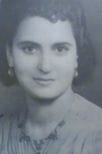
Undoubtedly, the way one dies, the relationship with the person at death, and the spiritual/religious beliefs of individuals impact memory and meaning, and therefore, the process of grief. When we think about memory, it is important to understand that what we remember is influenced by past experiences and most importantly, our perceptions of the experiences. This is to say that we form "mental maps" "schemata," which draw attention to phenomena and interpret experience based on the past. Often this is at the subconscious/unconscious level. Thus, it is important to understand and utilize another component of memory: What we choose to remember can also impact the process of grief. For example, X happens, and the person who survives calls attention to several things he/she "could have" done in his/her perception to prevent the death. The emotion is repeated, stored in the body, and can express itself in emotional/physicall illness. Needless to say, the repeated perception is often one of the harshest self-critiques, and purely speculative with regard to outcome. At its worst, it exacerbates depressive symptoms.
Such depression is often most prenicious if there is not other forms of support. For example, this can be experienced when a parent buries a child and there are other children in the home, who lose one or both of their parents to their parents' suffering. The couple unit may also suffer, if one partner loses themselves and withdraws from the relationship and life. This can happen across familial subsystems and various forms of loss (see writings on ambiguous loss by Pauline Boss). What is helpful here is to muster other forms of support (partner, family, community, support groups, therapist, etc.), which can gently assist the person to remember the totality of their experiences with their loved one who has passed, which is far more than the "should have," "could have" done this or that. Or, in the case of suicide, or a drug addiction overdose to understand the complexity of their loved one's experiences (See post on "Having Courageous Conversations On Suicide Prevention"). Irrespective of how our loved ones die, there is enough goodness in them, ourselves, the world, to support the healing process.
A Personal Reflection: " You will take off that black!"
It was the first time I would see my father cry. I was 17 when my brother died and still forming impressions of life, and trying to take it all in. His death was unexpected and devastating to family (his wife/young kids, my parents, us). I did not know what to feel or think. Dad read widely and flirted with many philosophical traditions, which appeared to comfort him. I would hear many stories of reincarnation from him, and considered it as a possibility, even though it went against my mother's Catholic tradition. Dad normalized our lives fairly quickly; mother would cry a lot. I would hear her crying in the mornings, and wanted to protect her and make her happy. Her tradition (Aramean) of dressing in all black for one year is certainly a visible testament of grief. But, it did not unfold as such as dad recognized a deeper, more functional truth: "You will take off that black!" he declared after some time. Mom adored dad and mostly listened to him. This time he was right, and I am grateful that she did. Sometimes when we encounter a particular type of pain (I imagine the loss of a child would be the greatest), the demonstrations and enactments of resiliency (taking off the black, literally and metaphorically) is the most loving gift to self, to others, and to the memory of our loved ones.
What does this mean exactly? Feeling sadness, anger, loneliness, thwarted hopes and dreams are all ok to feel. Are we not beautifully human? Sustaining life and generating life for self and others is about taking in the gamut of emotions all of us beings feel and being able to sit with them, compassionately and non-judgmenatlly feel them...to listen to them and acknowledge what they want to say, AND, also "take off the black," We must choose to invite other emotions in, which can assuage some of the heavier feelings and at its best, transform them to experiences that bring forth a deeper, refined, and kinder space of love for ourselves and others.
And, is it not true that there are things in life, such as premature death, illness, tragedy, familial pain that we cannot understand, or even begin to attempt to answer even one question- within the cluster of question marks- which our minds beckon us to? And, somehow as we learn to view ourselves, others, and life as interconnected teachers along our journeys, we are lead back to turning inward and trusting within, far beyond the rational mind. Here, meaning is illuminated.
So, for dear bro, I have a fun memory (and picture, somewhere) of him bringing champagne to my 17th Bday, and mom getting mad. He-much like dad-inspires the playful side in me.
For the memory of mom: I remember her for being PURE LOVE-to everyone-and holding a space of care, kindness,and understanding without the desire for even an acknowledgment. Mom would make these amazing feasts for 1 to 10s of 10s-and make it seem so easy. It would be rare to enter our home and not find her creating some meal for you. Mom was also amazingly simple and unpretentious: When dad or my brothers would buy her expensive gifts, she would not want them. She did not like calling attention to herself: cars, jewelry, no makeup. She was so easy to love and taught me that one way to love well is to love beyond the "I," beyond the "me."

 RSS Feed
RSS Feed
